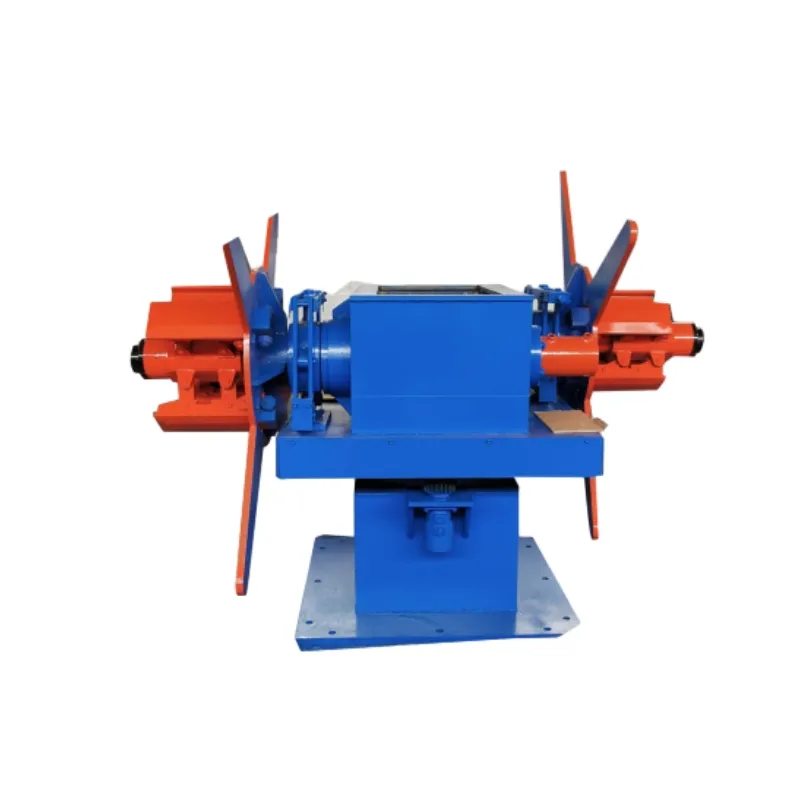roll forming equipment manufacturer
Roll Forming Equipment Manufacturers Innovations and Industry Landscape
Roll forming is a highly efficient and versatile manufacturing process that shapes metal into specific profiles by passing it through a series of rollers. This technology is vital across various industries, including automotive, construction, and furniture. Roll forming equipment manufacturers are at the forefront of this industry, providing the tools needed to create everything from simple metal strips to complex shapes used in various applications. In this article, we will explore the role of roll forming equipment manufacturers, the technology they employ, and trends shaping the industry.
The Role of Roll Forming Equipment Manufacturers
At the core of any efficient roll forming process is the machinery used to shape the material. Roll forming equipment manufacturers design and produce these machines, which typically consist of a series of rollers. Each roller performs a specific function and progressively bends the metal sheets into desired shapes. With advancements in technology, these manufacturers are now able to produce sophisticated equipment that enhances productivity, accuracy, and flexibility.
These manufacturers play a crucial role in custom designs, as many clients require specific shapes tailored to their applications. The ability to provide customization helps businesses stand out by offering unique solutions that meet their client's exact needs. Furthermore, roll forming equipment manufacturers often collaborate with customers during the design phase to ensure the best outcomes and optimized production processes.
Technological Advancements
Innovation in roll forming technology has led to the development of more efficient and versatile equipment. Manufacturers are now integrating computer-aided design (CAD) and computer numerical control (CNC) systems into their machinery. These technologies enable greater precision in the manufacturing process and reduce human error. Additionally, advancements in materials science have allowed manufacturers to work with a wider range of metals, including high-strength steel and lightweight alloys, expanding the applications for roll-formed products.
roll forming equipment manufacturer

Another trend is the automation of roll forming lines. Automated systems not only enhance efficiency but also allow for real-time monitoring and adjustments during the production process. This level of precision is critical in industries such as automotive, where even minor deviations in parts can lead to significant issues down the line. As manufacturers incorporate artificial intelligence and machine learning into their processes, the future of roll forming looks set to become even more streamlined and productive.
Industry Trends
The demand for roll forming equipment is rising, driven by the growth of industries such as construction and automotive manufacturing. As sustainable practices become increasingly important, manufacturers are focusing on energy-efficient machines that minimize waste and reduce energy consumption. This trend aligns with the broader industry movement towards sustainability, as companies become more conscious of their environmental impact.
Moreover, the rise of e-commerce and globalization means that manufacturers are also looking to expand their reach. Many roll forming equipment manufacturers are exploring international markets, recognizing the potential for growth outside their traditional markets. This expansion often involves partnerships or collaborations with distributors in various regions to facilitate smoother entry and operations.
Conclusion
In summary, roll forming equipment manufacturers play a pivotal role in the manufacturing landscape by providing essential tools for shaping metal in various industries. Through continuous innovation and adaptation to market trends, they ensure that the roll forming process remains efficient and effective. With advancements in technology and a shift towards sustainable practices, the future of roll forming equipment manufacturing appears bright. As industries continue to evolve, these manufacturers will remain integral to meeting the demands of modern production and advancing manufacturing capabilities globally.
-
High Frequency Straight Seam Welded Pipe Production Line-BzZhou Xinghua Machinery Equipment Manufacturing Co., LTD.|line pipe steel&welded gas pipeNewsJul.30,2025
-
High Frequency Straight Seam Welded Pipe Production Line-BzZhou Xinghua Machinery Equipment Manufacturing Co., LTD.|High Precision&Automated SolutionsNewsJul.30,2025
-
High Frequency Straight Seam Welded Pipe Production Line - BzZhou Xinghua Machinery Equipment Manufacturing Co., Ltd.NewsJul.30,2025
-
High Frequency Straight Seam Welded Pipe Production Line-BzZhou Xinghua Machinery Equipment Manufacturing Co., LTD.|Precision Welding, High EfficiencyNewsJul.30,2025
-
High Frequency Straight Seam Welded Pipe Production Line|BzZhou Xinghua|Precision Welding&EfficiencyNewsJul.30,2025
-
High Frequency Straight Seam Welded Pipe Production Line - BzZhou Xinghua|Precision Engineering&EfficiencyNewsJul.30,2025


